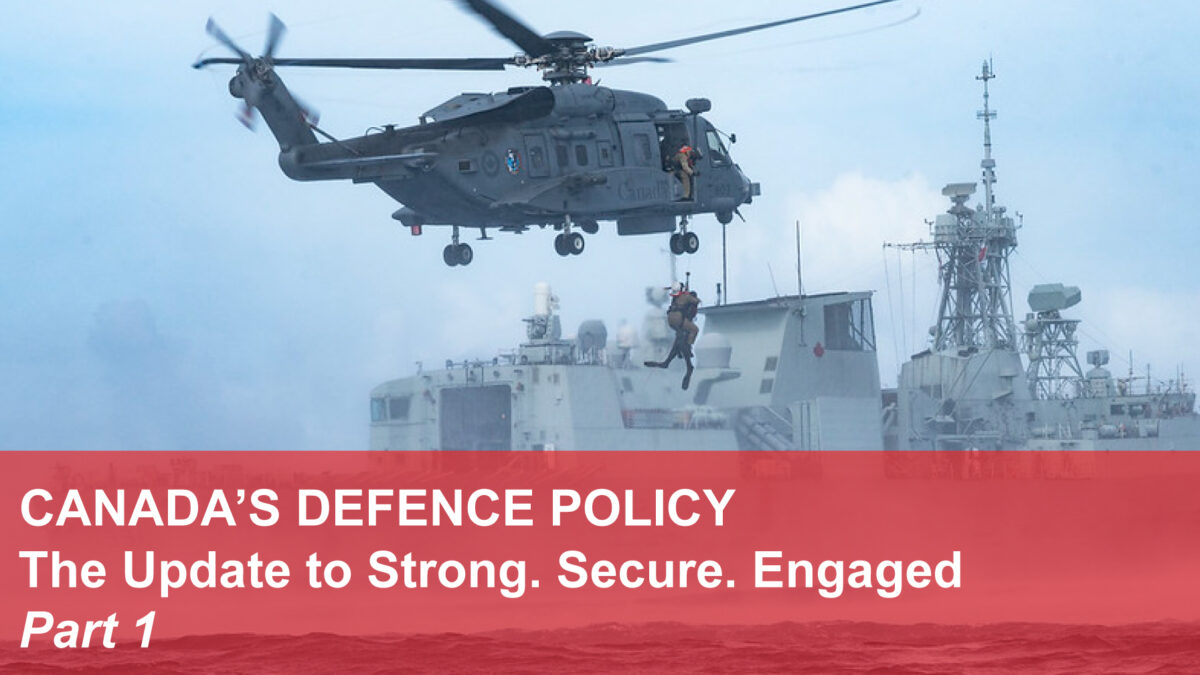Strong in Canada and Secure in North America means to Engage globally
The best country in the world
Canada has arguably the most favourable geo-strategic location in the world: bordered to the North by a frozen ocean, to the East and West by two of the world’s three coldest and most turbulent oceans, and to the South by a close ally that is also the world’s biggest economy and military superpower.
From here to there…
While enviable, it does not mean that either Canada, Canada’s interests, or Canadians at home and abroad are safe from the threat of conflict. Canada has learned that we are far better to address violence and conflict at their origins, wherever that may be across the globe.
The operational theatres in which Canada must as a result meaningfully contribute – to deterrence, to the fight if necessary, and to making and keeping a peace – are all geographically remote.
In my lifetime alone, Canada’s military have prepared to fight, have fought, have supported the fight, have made peace, and helped keep the peace in Europe, the Far East, central Asia, the Middle East, Africa, the Caribbean, and on and under oceans and seas across the Northern Hemisphere.
To this seemingly exhaustive list is now being added the greater Indo-Pacific, where Canadian frigates are today conducting anti-sanctions-breaking and freedom-of-navigation patrols.
Here at home, Canada’s Arctic presents a particular challenge: remote yet increasingly accessible, full of valued resources, and where Canada’s sovereignty over its waters is being contested.
… And everything in between.
The pacing adversaries we must help to deter and prepare to defend against include a re-expansionist and disruptive Russia, and the growing military power and “might-is-right” bullying behaviours of an emergent China superpower.
The need to contribute to deterrence extends to smaller nations such as Iran or North Korea, with nuclear and/or regional ambitions and a disruptive belligerence.
To these security challenges are added the threats to Canada and its interests of criminal gangs, civil wars, rogue actors, violent ideologies, and failed and failing states.
These threats encompass the full spectrum of conventional modern (and not-so-modern) warfare and are severely complicated by the proliferation of cheap missiles and lethal drones, and the major threat of cyber-attack on our civil infrastructure at home as well as our military forces deployed abroad.
The doomsday clock itself has moved closer to midnight. The nuclear and nuclear delivery capabilities of China are growing to match those of Russia, escalating the calculus of deterrence and increasing the risk of miscalculation. Canada is unlikely to be the target of these or of other, smaller nuclear actors, but we are in the likely ballistic flight path.
WANTED: Reach and staying power.
The reality of “anywhere” security challenges and the full range of threats that our men and women in uniform may have to deal are the drivers for our defence capability needs. For Canada to matter internationally, and for Canadians to want to be part of that effort, our Forces must have the fighting capabilities and the range, persistence, and endurance to go, make a difference, and return safely.
__________________
This is the first of a series of four Newsletter articles by Jake Jacobson on the long overdue Defence Policy Update. An overview article will also feature in the Dec/Jan print edition of the Vanguard magazine. Jake has studied and served for more than five decades in defence: at sea and in major programs for the Navy, in industry in a variety of executive roles, and as an Assistant Deputy Minister and Chief of Staff for the Materiel Group in the Department of National Defence.
_____________

